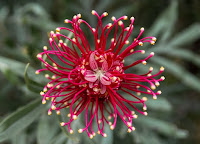This contemporary romance, set in the Caribbean, sees the two main characters struggling with different lifestyles and ambitions. The story got stuck in the second stage described below, went into hiding for a few years, then emerged to undergo a major re-write in Stage Three.
Find it on Amazon at B01FA8JSY
How did I get to be a fiction writer? Every author will have a different set of 'stages', but perhaps for most the first stage is when we decide to write a book. The type of book -- fiction, non-fiction--may be unknown, but the mind-picture arrives of 'self as author'. We've been to school, presumably we can spell, have a working knowledge of grammar, have acquired a vocabulary, and can put a decent sentence together. Millions of people have written books, so how hard can this be? Such confidence!
I think I decided I wanted to be a writer while in primary school. I came top in spelling tests, and received good marks for what was called composition which included creative and non-creative writing. Then, at age about 11, I won a short story competition. (The prize was Kenneth Grahame's Wind in the Willows which I still have.) Therefore, I could write! This early success indicated to my child's mind that I was going to be an author.

In what I consider to be the second stage of my writing life, a stage which was difficult and lasted years, I discovered that what I thought I'd learnt in the first was hopelessly inadequate. I knew nothing about creative writing. This period is a kind of apprenticeship, trying to grasp the technical skills--characterisation, plot, dialogue, pacing, tension, conflict, and a hundred other things essential to a well-crafted story. Lots of work to be done, reading widely in the chosen genre, joining relevant groups and finding similar writers, studying how-to books, attending workshops and conferences...and writing, re-writing, scrapping it all and tackling the ironing instead, deciding training as an astronaut must be easier than becoming a published writer. And yet the compulsion to write, to develop those ideas scribbled into a notebook, remains significant. Plus, and this is important, I started to enjoy this preparation, and still do.
By Stage Three, I like to think I've more ore less mastered the individual elements that can pull a book together. But still, somehow, it may not feel right. While in theory the writing may be adequate, the story could lack soul. Perhaps it needs more emotion, more tension, to encourage readers to page-turn even though the dinner is burning, to care about the characters and be anxious about their prospects. Working on this can be challenging, but worthwhile and ultimately satisfying.
Sales success launches Stage Four, when I can honestly describe myself as a writer. However, Stages Two and Three remain present in my writing, as there's always more to learn and to apply.
If you are not a writer and would like to be, I encourage you to go for it! Good luck! Priscilla

For those of you celebrating ghosty and witchy happenings this 31st of October, have fun!
www.bwlpublishing.ca
www.bwlpublishing.ca/authors/brown-priscilla-romance-australia
https:priscillabrownauthor.com
















